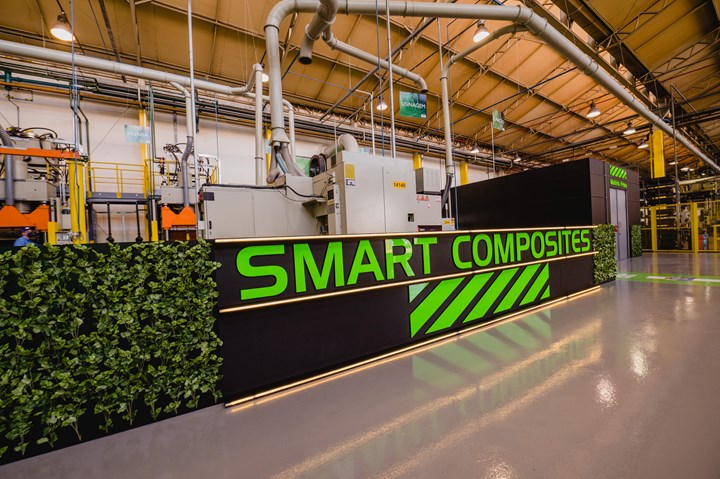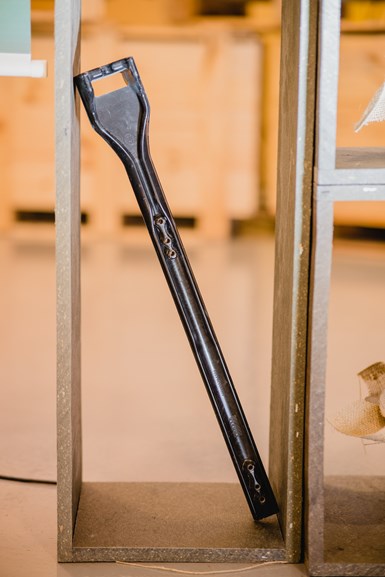Fras-le introduces composite materials line for Brazilian auto parts manufacture
Fras-le Smart Composites will enable the production of components with better performance and weight reduction up to 65%, with an eventual goal to extend beyond automotive.

Fras-le Smart Composites production line. Photo Credit: Alex Battistel
Fras-le (Caxias do Sul, Brazil), a Latin American car parts manufacturer, has introduced a new product line, Fras-le Smart Composites, which will work with composite materials for the production of automotive parts. According to Fras-le, the use of composites as an alternative to steel will result in more innovation designs, better performance (such as reduced fuel consumption, which leads to reduced emissions) and weight reduction up to 65%.
Qualification of Fras-le’s manufacturing technology with composite materials first began in 2018, with product and research development undertaken by Hercílio Randon Institute (IHR, Brazil) with support from the Randon Technological Center (CTR). Now, Fras-le Smart Composites will reportedly be one of the first to take the initiative of implementing composites for auto parts in the Brazilian road market. The first project involves the manufacture of sheeting molding compound (SMC) mud flaps for semi-trailers.
“With this movement, the company follows the direction of technological megatrends in the mobility sector and aligns its portfolio to the public sustainability commitments signed with a focus on ESG,” says Sérgio L. Carvalho, Fras-le CEO.

First project will be mud flaps to support semi-trailers. Photo Credit: Fras-le
It is anticipated that 40% of the semi-trailers produced by Randon Companies (Brazil), a trailer and semi-trailer manufacturer, will leave the factory equipped with Fras-le’s new composite line. The composite semi-rods are classified in both light- and heavy-duty versions and have weight reductions between 60-65%, compared to the original steel parts. The new components have also undergone rigorous durability tests. Through simplified drilling, the composite semi-rods improve the assembly process, do not require painting and do not suffer corrosive effects.
What is the primary goal? To market the product and technology with other partners in the automotive market, according to Anderson Pontalti, general director of Fras-le. “Once technically enabled, the design of new products react in the market, allowing a rapid expansion within the automotive industry. The appeal in mass reduction, in a competitive and sustainable way, has been leveraging great market interest. New developments are possible in relatively short periods when working with the CTR to accelerate the validation process.”
Fras-le notes that in coming months, new production technologies in composite materials will continue expanding to new components and markets.
Related Content
-
Infinite Composites: Type V tanks for space, hydrogen, automotive and more
After a decade of proving its linerless, weight-saving composite tanks with NASA and more than 30 aerospace companies, this CryoSphere pioneer is scaling for growth in commercial space and sustainable transportation on Earth.
-
Thermoset-thermoplastic joining, natural fibers enable sustainability-focused brake cover
Award-winning motorcycle brake disc cover showcases potential for KTM Technologies’ Conexus joining technology and flax fiber composites.
-
Thermoplastic composites: Cracking the horizontal body panel nut
Versatile sandwich panel technology solves decades-long exterior automotive challenge.
















